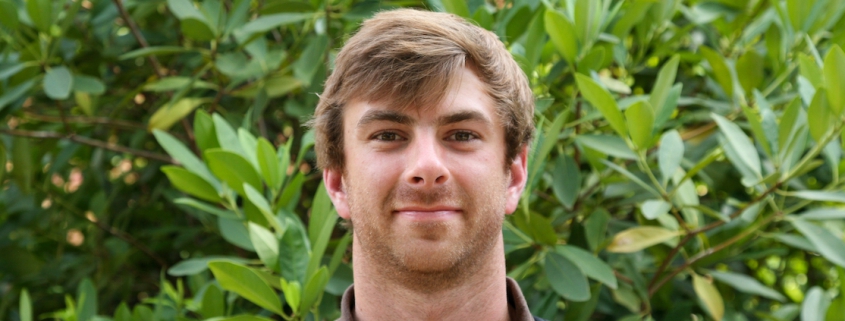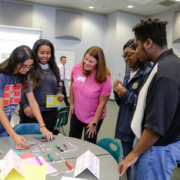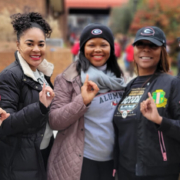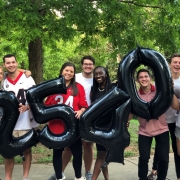$1.5 million gift to Odum School of Ecology honors legacy of ecology student John Spencer
Article written by Beth Gavrilles (MFA ’89)
John Spencer, a master’s student in ecology at the University of Georgia, was passionate about freshwater ecology, conservation and ecological restoration. A graduate fellowship established through a $1.5 million commitment from John’s mother and stepfather, Kathelen (JD ’82) and Dan Amos (BBA ’73), is ensuring that his legacy will reach far into the future.
“Kathelen and Dan Amos are two of the most generous and devoted alumni of the University,” said President Jere W. Morehead. “Their establishment of the John K. Spencer Fellowship is a meaningful tribute to John that will help advance the important work he intended to carry out.”
John Spencer arrived at UGA in the fall of 2014 and immediately distinguished himself at the Odum School of Ecology for his hard work, ready laugh, enthusiasm and, most of all, his thoughtfulness. He cared deeply about people and the natural world. His untimely death in 2016 left his family, friends and colleagues devastated.
“John’s memory is with us every day—his smile, his optimism and passion for life,” said John L. Gittleman, dean of the Odum School and UGA Foundation Professor in Ecology. “John wanted us all to enjoy and conserve the natural world around us. This gracious and kind gift will ensure that future generations will have the chance to fulfill John’s passion.”
John’s research focused on the health of urban streams.
“John wanted to study—and positively affect—how stream ecosystems respond to stressors associated with watershed land-use change, particularly urbanization,” said professor Amy Rosemond, who co-advised John with assistant professor Seth Wenger.
John studied the effects of elevated conductivity—the amount of dissolved ions, or pollutants, in water—on invertebrate communities in urban streams as a way to measure stream health. In December 2016, the University of Georgia awarded him a posthumous master’s degree in recognition of the work he had completed toward the requirements of his degree.
The John K. Spencer Fellowship was established that year with an initial gift from John’s family and contributions from more than 370 friends, classmates and colleagues. The two-year fellowship provides a research assistantship to students in the master’s in ecology or conservation ecology and sustainable development degree programs who are interested in pursuing careers in management and conservation of aquatic ecosystems.
To date, three students have received Spencer Fellowships, and their work is already having an impact. Inaugural Spencer Fellow Emily Johnson built upon the foundation of John’s research to identify particular disturbances impacting water quality in Athens-area streams and create a real-time monitoring system that makes it easy for municipal water managers to respond to issues quickly.
Zach Butler is studying the impacts of an invasive species, the nine-banded armadillo, on the ecosystems and native wildlife of the Georgia barrier islands. Zach’s research has upturned the conventional wisdom about this species, finding that they are helping to fill part of the ecological role of the gopher tortoise, a native species in decline across the Southeast. His findings are now informing coastal ecological management plans.
Talia Levine is studying contaminant levels in fish found in the Turtle Brunswick River Estuary near a Superfund site on the Georgia coast. She is measuring PCB and mercury concentrations in whole fish because, while fish consumption guidelines for the area exist, they are based on filleted samples only, and there is evidence suggesting community residents use more of the fish than just the fillets. Talia is sharing what she learns with government agencies and nonprofit organizations in the Brunswick area to support them as they work to ensure safe consumption of seafood resources by community residents.
“The John K. Spencer Graduate Fellowship honors John by providing our outstanding graduate students the opportunity to pursue careers in aquatic conservation and management and make a positive difference, as John intended to do,” said Gittleman. “This gift ensures the continuation of John’s legacy, for which we are immensely grateful.”










